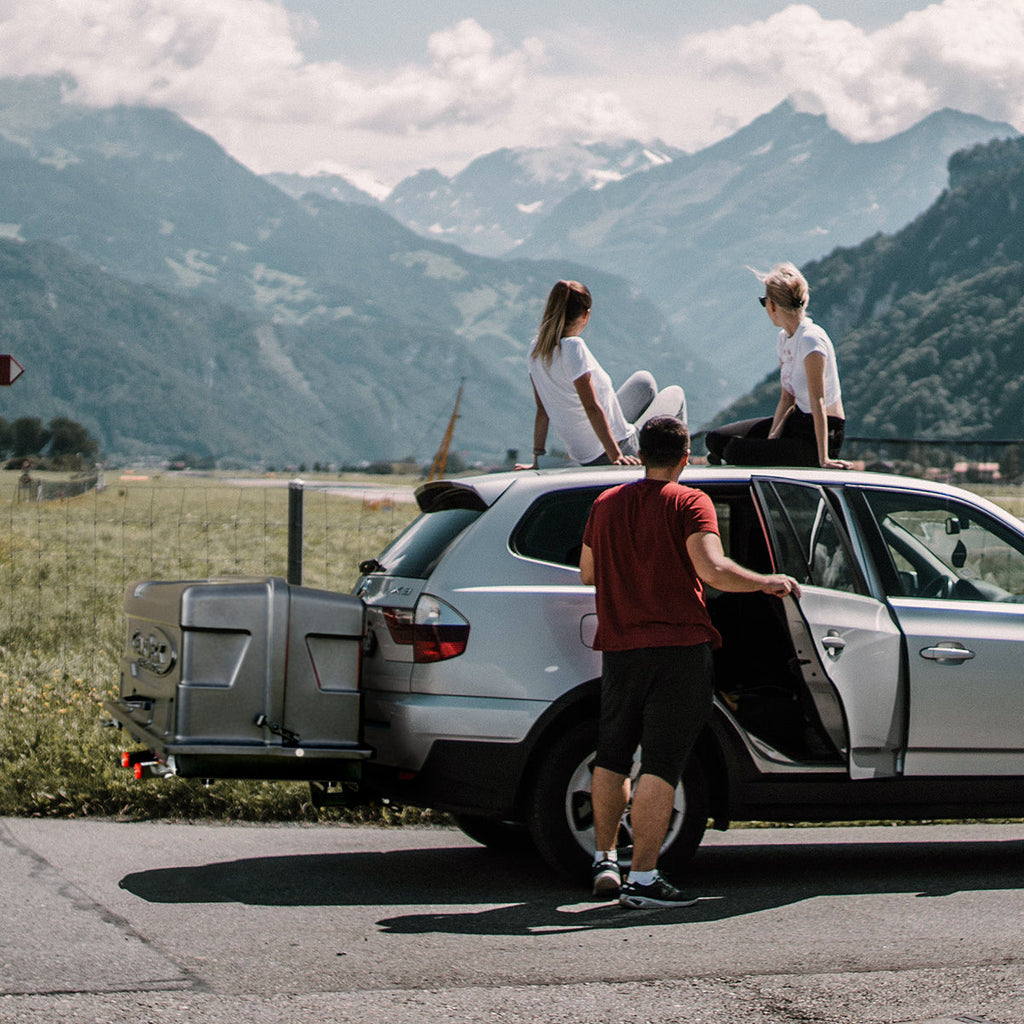Author: Amanda Kennedy
Published: April 16, 2025
Updated: April 16, 2025


Packing for a trip and running out of space in your car is a common dilemma. This is where a cargo carrier comes in handy. Instead of cramming everything into the trunk, you can load extra luggage, equipment, or supplies onto a cargo carrier and free up room inside for passengers and comfort. Cargo carriers come in various styles—from roof boxes to hitch baskets—but all serve the same essential purpose: transporting goods conveniently and safely outside of a vehicle's cabin. This article explores what cargo racks are, the types available, their uses and benefits, installation tips, and answers common questions to help you make informed decisions.

A cargo carrier is an external accessory you mount onto your vehicle to carry extra gear that won’t fit inside. Essentially, it's an additional storage solution, an “add-on trunk” providing secure containers or platforms outside your vehicle.
Cargo carriers can be:
Cargo carriers allow you to transport items that otherwise wouldn't fit—whether luggage, camping gear, sports equipment, or work tools. They expand your car’s storage capacity, improving passenger comfort and safety by keeping cargo securely outside. Both casual travelers needing more space for family road trips and outdoor enthusiasts hauling bulky gear rely on these versatile accessories.

Cargo carriers come in multiple types, each suited to different vehicles and uses:

These attach to vehicle rooftops, typically using roof racks or crossbars. They include hard-shell cargo boxes, roof baskets, and soft cargo bags. Roof carriers are ideal for long trips or sporting goods like skis. Although they can affect fuel efficiency due to increased wind resistance and vehicle height, they're popular due to ease of access and minimal interference with vehicle entry points.

These carriers connect directly to the vehicle’s rear hitch receiver. Hitch carriers typically come in two main styles: open and enclosed.
Open hitch carriers sometimes called cargo racks or cargo baskets are generally metal platforms that offer easy loading and quick access to cargo. They're sturdy and well-suited for heavy or bulky items like coolers, generators, or firewood. Open carriers also minimize aerodynamic drag, improving fuel efficiency compared to rooftop carriers.
Enclosed hitch carriers, on the other hand, feature a protective shell or box, typically made from heavy-duty plastic or aluminum. These carriers shield your cargo from weather, dirt, and road debris, making them ideal for luggage, equipment, or valuable items. Many enclosed carriers include integrated locking mechanisms, offering enhanced security and peace of mind when traveling or parked overnight.
One important consideration with hitch carriers is rear vehicle access. Depending on the carrier’s design, they may limit your ability to easily open rear doors or the hatch. However, some models address this issue with swing-away or slide-out mechanisms—like those offered by brands such as Let’s Go Aero—which provide convenient access without needing to unload your cargo.
| Feature |
 GearSpace |
 GearDeck |
 BlackBox |
 BlackBox PRO |
|---|---|---|---|---|
| Capacity | 34 cu. ft. | 17 cu. ft. | 51 cu. ft. | 64 cu. ft. |
| Gear Capacity | 300 lbs | 300 lbs | 300 lbs | 300 lbs |
| Carrier Weight | 150 lbs | 80 lbs | 175 lbs | 180 lbs |
| Hitch Rating | Class II+, 2in Receiver | Class I+, 2in Receiver | Class III+, 2in Receiver | Class III+, 2in Receiver |
| Vehicle Compatibility | Motorized Vehicle & RV Trailer Approved | Motorized Vehicle & RV Trailer Approved | Motorized Vehicle & RV Trailer Approved | Motorized Vehicle & RV Trailer Approved |
| Hitch Rise | 4 in | 4 in | 4 in | 4 in |
| Slide-out Clearance | 32 in | 34 in | 28 in | 28 in |
| Locks | Includes Capsule Locks | Lockable (locks not included) | Includes Capsule Locks | Includes Capsule Locks |
| Learn More | Learn More | Learn More | Learn More |

Truck bed carriers include bed extenders, racks, and tie-down systems specifically for pickup trucks. These carriers expand and organize cargo space in the truck bed, enabling the secure transport of oversized items like kayaks, lumber, or bikes. They’re ideal for pickup truck owners looking for enclosed lockable options.

Designed specifically for particular gear, these include bike racks, kayak holders, ski racks, and surfboard mounts. Specialty carriers secure items safely, fitting precisely to the equipment's shape and preventing damage or movement during transport. Outdoor enthusiasts frequently use specialty carriers for secure and convenient gear hauling.

Cargo carriers aren't limited to one task—they’re versatile enough to accommodate a variety of scenarios:

No roof rack or hitch? No problem. Alternative cargo solutions include:
Safety tips include:

Attaching a hitch-mounted cargo carrier is straightforward:

Cargo carriers significantly enhance vehicle capability, comfort, and versatility:

Yes, enclosed cargo carriers and cargo racks are safe for extended journeys. Be sure to check that the roof or hitch carrier is installed correctly, securely loaded, and regularly checked during trips to ensure gear hasn't shifted and your connections have not loosened.
Hitch carriers require a vehicle-specific trailer hitch. Most vehicles, from sedans to SUVs, can accommodate a suitable aftermarket hitch if not factory-equipped.
Typically, roof-mounted carriers safely handle around 100-165 pounds. Hitch carriers generally support up to 300 lbs safely, depending on the vehicle’s hitch class and carrier design. Always adhere to the lowest limit between your carrier’s weight capacity and your vehicle’s specifications.

Cargo Carriers open endless possibilities for enhancing your vehicle's storage capabilities. Whether you are using a hitch cargo rack, rooftop carrier or a specialty carrier, by understanding their types, uses, and benefits, you can choose the best cargo solution for your adventures, travels, or everyday transport needs—helping you make the most of every journey.